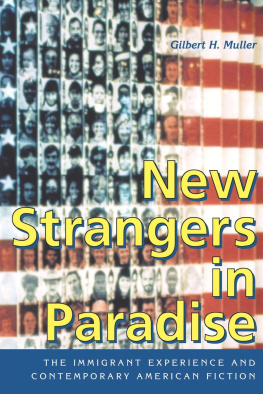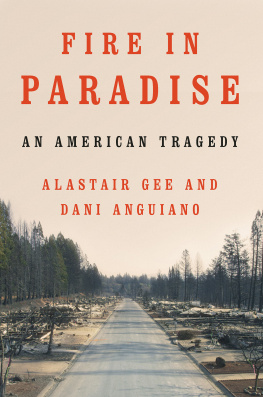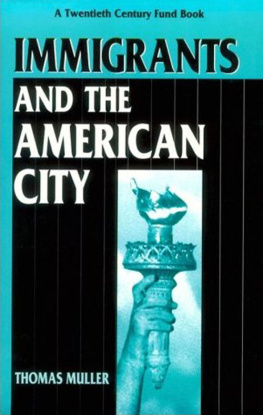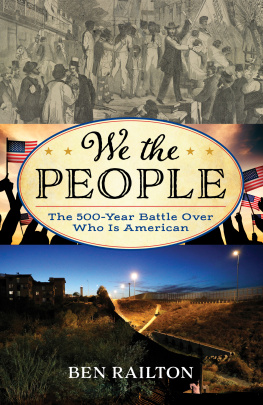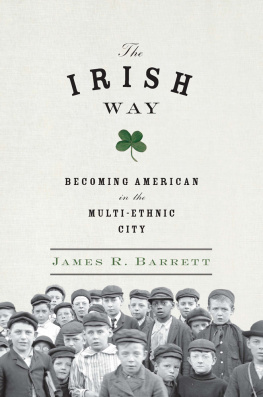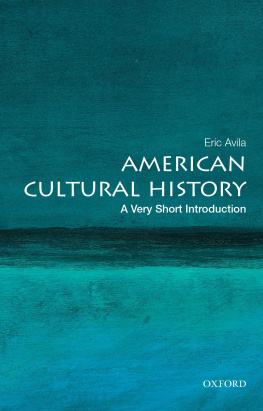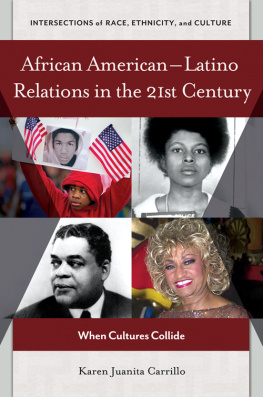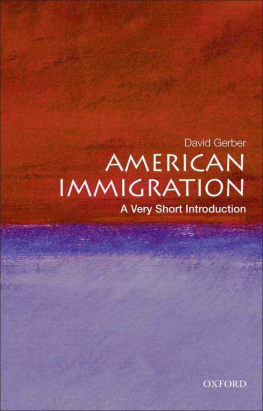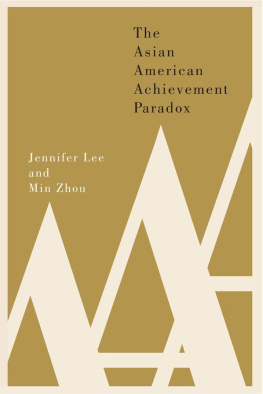New Strangers
in
Paradise
New Strangers
in
Paradise
The Immigrant Experience
and
Contemporary American Fiction
GILBERT H. MULLER

Publication of this volume was made possible in part
by a grant from the National Endowment for the Humanities.
Copyright 1999 by The University Press of Kentucky
Scholarly publisher for the Commonwealth,
serving Bellarmine University, Berea College, Centre
College of Kentucky, Eastern Kentucky University,
The Filson Historical Society, Georgetown College,
Kentucky Historical Society, Kentucky State University,
Morehead State University, Murray State University,
Northern Kentucky University, Transylvania University,
University of Kentucky, University of Louisville,
and Western Kentucky University.
All rights reserved.
Editorial and Sales Offices: The University Press of Kentucky
663 South Limestone Street, Lexington, Kentucky 405084008
www.kentuckypress.com
The Library of Congress has cataloged the hardcover edition as follows:
Muller, Gilbert H., 1941
New strangers in paradise : the immigrant experience and contemporary American fiction / Gilbert H. Muller.
p. cm.
Includes bibliographical references (p. ) and index.
ISBN-10: 0-8131-2134-5 (alk. paper)
1. American fictionMinority authorsHistory and criticism. 2. Immigrants in literature. 3. American fiction20th centuryHistory and criticism. 4. Emigration and immigration in literature. 5. Ethnic groups in literature. 6. Minorities in literature. I. Title.
PS374.I48M85 1999
813.54093520691dc21 99-24008
ISBN-13: 978-0-8131-2134-5 (cloth : alk. paper)
ISBN-13: 978-0-8131-9200-0 (pbk. : alk. paper)
This book is printed on acid-free recycled paper meeting the requirements of the American National Standard for Permanence of Paper for Printed Library Materials.

Manufactured in the United States of America.

| Member of the Association of
American University Presses |
For Laleh,
Parisa, and Darius
Contents
Promised Land
Postwar Fiction and the Immigrant Experience
Haunted by the Holocaust
Displaced Persons and the American Dream
Migrant Souls
The Chicano Quest for National Identity
Metropolitan Dreams
Latino Voyagers from the Caribbean
Middle Passage
The African-Caribbean Diaspora
Gold Mountains
The Asian-American Odyssey
Preface
This book is about the interacting forces of migration and immigration, the global push and pull, the arrivals and departures that constitute a unique episode in the interrelationship of contemporary American fiction and the historical world. It covers a cultural and literary landscape that has been transformed since the Second World War by an increasingly large and diverse tide of immigrants to Americas shores. Containing an introductory chapter that provides an overview of immigration as portrayed in recent American fiction, five chapters devoted to readings of seminal texts drawn from distinct immigrant cultures, and a concluding chapter, New Strangers in Paradise explores the relations of culture and power provoked by Americas new immigrant tide. The book concerns itself with issues of race and ethnicity, multiculturalism and pluralism, postcolonialism and postmodernity, national and international conflicts. It explores the psychology of uprooted peoples, from the survivors of the Holocaust to the refugees of the Haitian boatliftsthe diasporic imagination in quest of the American Dream.
By focusing on writers as significant and diverse as Singer, Marshall, Kincaid, Mukherjee, Tan, Hijuelos, and others, this study demonstrates the ways in which American novelists and short story writers utilize the immigrant experience to erect new epics or national narratives for our times. Immigration has captured the imagination of numerous contemporary writers because it illuminates what Edward Said in Culture and Imperialism aptly terms the contrapuntal and often nomadic nature of American civilization at the end of the twentieth century. As Toni Morrison observes in Playing in the Dark, American literature, especially in the twentieth century, and notably in the last twenty years, has been shaped by its encounter with the immigrant. Such literature rewrites the story of what it means to be American.
The aim of this book is to join cultural and literary experience in the first sustained study of contemporary American novelists and short story writers who explore this revolutionary fourth wave of immigration to Americas shores. It seeks to be a broadly historical and cultural inquiry into selected paradigmatic texts that highlight the flowering of immigrant fiction today. By showcasing constellations of writers who deal with the immigrant experience from clearly defined ethnic and racial perspectives, this work demonstrates the ways in which such fiction reveals a common quest for American identity within a world of flux and change.
While extending the borders and thresholds of contemporary American fiction, the theme of immigration permits a dynamic convergenceespecially in the era following the Immigration Act of 1965of multiple heritages in one society. The overarching thesis of New Strangers in Paradise is that even as immigration since World War II remakes our world, it fosters or elicits new creativities in literature and life. These creativities are rooted in unique or alternative cultural experience and ethnic options, but they also suggest the need for a dynamic pluralism. The new immigrant experience in American fiction offers a vision that is at once diverse and inclusive. As such, todays novelists cross multiple borders in search of a single, shared national experience.
Immigrants have always engaged in nation-building, and the immigrants we encounter in postwar American fiction are emblematic of the transformation of our national mythology and of its literary canon. Such fiction argues for a polyglot nation, transnational connections, and new forms of cultural authority.
1
Promised Land: Postwar Fiction and the Immigrant Experience
My mother believed you could be
anything you wanted to be in America.
Amy Tan, The Joy Luck Club
Fiction and history in the era after World War II are interlocking journeys by immigrants to Americas shores. This immigrant tide in contemporary American fiction is global, flowing across diasporas, borders, and postcolonial terrains. From the Holocaust to the Haitian and Cuban boatlifts, many of the departures and arrivals are reflections of recent historical traumas, creating in fiction what Bharati Mukherjee terms odysseys of dislocation (Woodford 2). Immigration for Americas short story writers and novelists today is the representation of radically new desires by the worlds uprooted peoples, an allegory chronicling the evolution of a multicultural nation-state.
The postwar strangers from near and distant shores who arrive in America constitute the latest wave in those major cycles of immigration that have characterized the nation since its colonial origins. However, they represent a unique historical conjuncture: instead of coming predominantly from Europe, these new strangers in Paradise have departed from all points on the global compass. Like F. Scott Fitzgeralds Dutch sailors in

